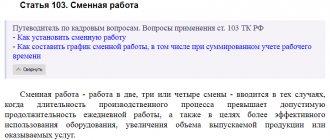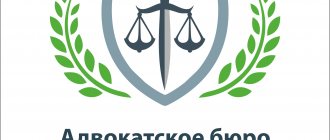Commentary on Article 98 of the Criminal Code of the Russian Federation
1. The purposes of using PMMH were formulated quite precisely for the first time only in the Criminal Code of the Russian Federation. This seems extremely important, since: a) it reflects the social orientation of the application of these measures; b) excludes the subjective interpretation of this extremely controversial issue by law enforcers; c) provides a unified direction for the activities of all bodies, departments and services (expert, investigative, judicial, medical, penal, etc.), one way or another interested in the application, purpose, execution, termination of these measures, and also allows In case of disagreement, remove possible contradictions in resolving the issue of the need to apply these measures on the part of relatives.
2. The purpose of using PMMH, as already noted, cannot be punishment or state condemnation (censure) of the perpetrator.
2.1. A person suffering from a mental disorder, due to damage to the volitional sphere of the psyche, is objectively unable to realize the punitive or educational significance of the impact of CP measures. Therefore, the main goals of using PMMH are to cure the persons specified in Part 1 of Art. 97, or such an improvement in their mental state that practically eliminates or significantly reduces the likelihood of these persons committing new socially dangerous acts, as well as the danger of their actions (inaction) causing other significant harm to legally protected interests, including themselves. One of the purposes of using PMMH is also the social rehabilitation of these persons.
2.2. In relation to persons who are recognized as of limited sanity, but in need of PMMH, the purpose of applying these measures is, in addition to those mentioned, the correction of the convicted.
2.3. Recovery in medical practice usually means the complete disappearance of painful manifestations of a mental disorder. It should be borne in mind that in diseases that tend to systematically worsen, a paroxysmal or periodic course, the disappearance of painful manifestations after the next attack, phase or exacerbation has passed, does not yet indicate a complete recovery of the person, since after remission or so In the so-called light interval, the disease can appear again in the form of a new attack or exacerbation. Consequently, the patient’s recovery can only be discussed when the commission of psychiatrists (and the court) has firm confidence that no recurrence of dangerous painful manifestations will occur over a sufficiently long period (approximately 3-5 years). When recovery occurs, the person is recognized as completely mentally healthy and not in need of psychiatric help.
2.4. If, as a result of treatment, not all of a person’s symptoms disappear, but, for example, only the most severe, persistent or systematically worsening painful manifestations, this does not indicate recovery, but a significant improvement in the mental state of the person. Depending on the degree and nature of the remaining manifestations, it is possible to decide whether to discontinue the prescribed PMMH or to adequately change it.
3. The stated goals of using PMMH, as a rule, are dialectically interconnected and therefore require the complex application of therapeutic and treatment-rehabilitation measures (medicinal, psychotherapeutic, occupational therapy, social rehabilitation, etc.) to these individuals.
4. When using PMMH, one should strive specifically for the complete cure of people suffering from mental disorders. However, existing methods and means of treatment do not always achieve this goal. Often the reason for this is the severity of chronic mental disorders that these individuals suffer from. Therefore, the legislator rightly indicates, as one of the goals that bodies and persons providing mental health care should strive to achieve, such an improvement in the patient’s mental state that allows the question of abolishing or changing the type of PMMH to be raised. Hence, cure should be considered as a kind of “maximum program” for the application of these measures, and improvement of mental state as a “minimum program.”
5. Prevention of the commission of new socially dangerous acts by these persons can also be considered both as a relatively independent goal of using PMMH, and as a component (complementary) of the other two specified goals.
5.1. Thus, the use of one or another PMMH (Article 99) must, first of all, ensure that the given person does not commit new socially dangerous acts during the execution of the compulsory measure itself. This is ensured both by the severity of the regime in a psychiatric hospital of one type or another, prescribed by court order (Article 443 of the Code of Criminal Procedure), and by the nature of constant monitoring of patients. Therefore, even if active drug treatment is not applied to a person suffering from a mental disorder for a long time, medical personnel have sufficient grounds to believe that, due to their mental state and social properties, they pose an increased danger to society or themselves, their detention in a psychiatric hospital will be legal and justified.
6. If, as a result of the medical and social rehabilitation measures taken, the patient has fully recovered or has had such a persistent improvement in his health that allows us to talk not only about his cure, but also about the achievement of a sufficiently high degree of his social readaptation, making it impossible to commit a new crime, we can talk about the simultaneous achievement of each of the indicated goals of PMMH.
Commentary to Art. 102 of the Criminal Code of the Russian Federation
All issues related to the use of compulsory medical measures are resolved by the court. The issue of their appointment is decided by the court, taking into account the conclusion of the forensic psychiatric examination, and issues of extending, changing and terminating compulsory medical measures are decided by the court upon the proposal of the administration of the institution providing compulsory treatment. Such a submission is sent to the court on the basis of the conclusion of a commission of psychiatrists. Thus, the legislator attributed the resolution of any issues of the use of compulsory measures of a medical nature to the exclusive competence of the court.
So, according to Art. 445 of the Code of Criminal Procedure of the Russian Federation, only the court, at the request of the administration of a psychiatric hospital, confirmed by a medical report, as well as at the request of the legal representative of a person declared insane and his defense attorney, has the right to terminate, change or extend the application of a compulsory measure of a medical nature to this person.
In this case, issues of termination, modification or extension of the application of a compulsory measure of a medical nature are considered by the court that issued the decision on its application, or by the court at the place where this measure was applied.
As stated in the law, one of the grounds for resolving issues of applying a compulsory measure of a medical nature is the conclusion of a commission of psychiatrists. Its personnel, upon the recommendation of the hospital's chief physician, is approved by the health authority under the hospital's subordination. The conclusion reflects the mental state of the person to whom compulsory medical measures have been applied, and the possibility of raising before the court the question of changing or canceling the compulsory measure.
The medical report and the petition to change the compulsory measure are subject to examination at the court hearing, at which the opinions of the persons participating in the court session are also heard. If the medical conclusion is in doubt, then the court, at the request of the persons participating in the court session, or on its own initiative, may order a forensic examination, request additional documents, and also interrogate the person in respect of whom the issue of termination, modification or extension of the application of a compulsory medical measure is being decided. character, if this is possible due to his mental state.
Although all issues of compulsory medical measures are decided by the court, the initiator of their implementation is not the court.
The fact is that when imposing a compulsory measure of a medical nature, the court does not set a period during which this measure will be carried out. But its implementation cannot continue indefinitely. And although the legislator does not limit the time for the application of compulsory measures of a medical nature, the law establishes the terms for the examination of persons who have been assigned compulsory measures by a commission of psychiatrists.
The examination must be carried out in order to resolve the issue of the existence of grounds for making a submission to the court to terminate the use or change of a compulsory medical measure at least once every six months.
In Part 2 of Art. 102 of the Criminal Code of the Russian Federation establishes that the examination is carried out on the initiative of the attending physician, if during the treatment he came to the conclusion that it is necessary to change a compulsory measure of a medical nature or terminate its application, as well as at the request of the person himself, his legal representative and (or) a close relative. The petition is submitted through the administration of the institution providing compulsory treatment, regardless of the time of the last examination. The above version of the law allows for two interpretations. Analyzing the text of the law, firstly, we can come to the conclusion that, speaking about the initiative to conduct an examination, the legislator assumes an initiative regarding an examination carried out every six months. But with this interpretation, the question arises about the obligation to conduct the specified examination in the absence of initiative on the part of the entities specified in the law. It is obvious that the survey should be carried out at least once every six months, regardless of the initiative of the relevant entities. If it is not there, the initiative must be taken by the administration of the institution where compulsory treatment is carried out. Therefore, in Part 2 of Art. 102 of the Criminal Code of the Russian Federation, in our opinion, speaks of an extraordinary examination, although this term is not used in the law. In addition, if the patient's condition has changed, the examination can be carried out at any time before the expiration of six months.
The initiative to conduct an extraordinary examination belongs to: the attending physician, the person in respect of whom compulsory treatment is being carried out, his legal representative and (or) a close relative.
The definition of the concepts of legal representative and close relative is contained in paragraphs 4 and 12 of Art. 5 Code of Criminal Procedure of the Russian Federation. In addition, the circle of legal representatives to resolve this issue is determined by Art. 7 of the Law of the Russian Federation “On psychiatric care and guarantees of the rights of citizens during its provision.” Such persons, in particular, may be a spouse, parents, children, adoptive parents, adopted children, siblings, grandparents, grandchildren, as well as adoptive parents, guardians, trustees.
A lawyer can also protect the rights and legitimate interests of a citizen when providing him with psychiatric care. The petition is submitted through the administration of the institution providing compulsory treatment, regardless of the time of the last examination.
Based on the results of the examination, a commission of psychiatrists may come to the conclusion that a compulsory medical measure is terminated or changed or that there are no grounds for such measures. In any version of the conclusion, it is sent to the court to resolve the issue on the merits.
If the commission of psychiatrists does not find grounds to terminate the application or change the compulsory measure of a medical nature, the administration of the institution implementing the compulsory treatment shall submit to the court a conclusion on the extension of the application of the compulsory measure, and the first time such a conclusion is submitted six months after the person is placed in such a facility. institution, and subsequently - annually, which does not exclude the obligation to examine the person every six months.
The extension of compulsory treatment is associated not only with the fact that the patient does not have any serious positive clinical changes in his health. There may be such changes aimed at improvement. However, the possibility of the temporary nature of such changes should be taken into account, and this means the need for a prognostic nature of the conclusion, taking into account all the data from the anamnesis and the dynamics of the development of the disease.
Extension of compulsory treatment should also take place in cases where the court, not agreeing with the position of the institution providing compulsory treatment on the abolition of such treatment, refuses to submit a request to the administration.
For example, in the case of K., the Judicial Collegium for Criminal Cases of the Supreme Court of the Russian Federation overturned the court's ruling, indicating the following.
In accordance with Part 2 of Art. 102 of the Criminal Code of the Russian Federation, a person who has been assigned a compulsory measure of a medical nature is subject to examination by a commission of psychiatrists at least once every six months to decide whether there are grounds for making a submission to the court to terminate the application or to change such a measure. If there are no grounds for terminating the application or changing a compulsory medical measure, the administration of the institution providing compulsory treatment shall submit a conclusion to the court to extend compulsory treatment. The first extension of compulsory treatment can be made after six months from the start of treatment; thereafter, extension of treatment is carried out annually.
In the case under consideration, these requirements have not been fully met.
Dismissing the proposal of the head physician of psychiatric hospital No. 5 to cancel the compulsory medical measure against K. without satisfaction, the court, contrary to the law, did not decide the issue of extending his compulsory treatment.
The court's conclusion about K.'s state of health and short period of remission was made without taking into account and assessing the information contained in the psychiatric examination report, that he does not show signs of a reactive state and does not need further application of medical measures to him. The data contained in other acts of K.’s psychiatric examination also cast doubt on the court’s conclusion about the period of remission.
As can be seen from the case materials, K. was undergoing treatment even before the application of compulsory treatment for committing a socially dangerous act while insane. During the period of stay in a psychiatric hospital, the medical commission twice came to the conclusion that it was necessary to stop compulsory treatment.
In addition, when considering the petition, the court did not take into account the requirements of the law that when canceling compulsory treatment in relation to a person who was undergoing compulsory treatment, the court may transfer the necessary materials to the health authorities to resolve issues of treatment or sending this person to a psychoneurological institution of social security. provision in the prescribed manner. The health authorities may appoint a guardian for him. Relatives without formal guardianship provide assistance to the patient only on a voluntary basis.
Taking into account the above, the case was sent to the Moscow City Court for a new trial and it was proposed to investigate the circumstances related to the presentation of the chief physician, with the participation of the legal representative (trustee), request the necessary documents, eliminate the noted shortcomings and violations and, in accordance with the requirements of the law, make a decision .
———————————
See: Determination of the Judicial Collegium for Criminal Cases of the Supreme Court of the Russian Federation dated April 9, 2002 // Bulletin of the Supreme Court of the Russian Federation. 2003. N 4.
When deciding the issue of changing a compulsory measure of a medical nature, the court is not bound by any rules on the sequence of prescribing a more strict or less strict measure. In this matter, the court is guided by the patient’s condition. Therefore, for example, if a patient was prescribed compulsory treatment in a general psychiatric hospital, and his condition worsened and there are indications for a change in treatment in a specialized psychiatric hospital with intensive observation, the court has the right to make such a change. In this regard, the court has the right, when deciding on changing a compulsory medical measure, to decide to change the type of psychiatric hospital to a hospital with more strict supervision or less strict, since the mental state of a person’s health can either improve or worsen during treatment. The basis for changing a compulsory measure of a medical nature is such a change in the mental state of a person that makes it necessary to prescribe another compulsory measure of a medical nature.
Changing a compulsory measure of a medical nature is possible when this measure was prescribed lawfully.
Thus, A. was released from criminal liability for committing a socially dangerous act in a state of insanity, provided for in Art. 116 of the Criminal Code of the Russian Federation, and in accordance with paragraph “a” of Part 1 of Art. 97, paragraph “b”, part 1, art. 99 of the Criminal Code of the Russian Federation, compulsory medical measures were applied to him in the form of compulsory treatment in a general psychiatric hospital.
The case was not considered in cassation. Further, by order of the city court judge A., the type of compulsory treatment was changed to outpatient compulsory observation and treatment by a psychiatrist at the place of residence, which was then extended.
Having checked the criminal case, materials on changing the type of compulsory measure of a medical nature and on the extension of a compulsory measure of a medical nature, having discussed the arguments of the supervisory submission, the Judicial Collegium for Criminal Cases of the Supreme Court of the Russian Federation came to the following conclusions.
Committed A. socially dangerous act, provided for in Art. 116 of the Criminal Code of the Russian Federation, in accordance with Art. 15 of the Criminal Code of the Russian Federation belongs to the category of minor gravity.
According to Part 2, 4 Art. 443 of the Code of Criminal Procedure of the Russian Federation, if an insane person commits an act of minor gravity, the court issues a decision to terminate the criminal case and refuse to apply compulsory medical measures. A copy of the court decision is sent to the health authority to decide on the treatment or referral of a person in need of psychiatric care to a psychiatric hospital.
Medical assistance to such a person and his hospitalization in a psychiatric hospital can be carried out by health authorities in accordance with the Fundamentals of the legislation of the Russian Federation on the protection of the health of citizens and the Law of the Russian Federation “On psychiatric care and guarantees of the rights of citizens during its provision.”
However, both the trial court and the supervisory court made erroneous decisions that were not based on the law.
Under such conditions, the court decisions taken against A. were canceled with the termination of the criminal proceedings and the application of compulsory medical measures.
———————————
Supervisory ruling of the Judicial Collegium for Criminal Cases of the Supreme Court of the Russian Federation dated July 4, 2006 N 11-DP06-66.
The basis for terminating a compulsory medical measure is such a change in the person’s mental state that there is no need to apply the previously prescribed measure. In other words, we are apparently talking about the patient’s recovery. But complete resolution of the disease is extremely rare in practice. Therefore, the basis for terminating the application of a compulsory medical measure may also be a change in mental state that significantly reduces the possibility of causing significant harm to oneself or other persons. At the same time, a decrease in the degree of social danger of a person and the potential for harm may be associated not with an improvement in mental state, but with a change leading to the desired result.
The types of legal consequences of termination of the application of a compulsory medical measure depend on the stage of criminal proceedings (trial or pre-trial) at which the court makes the appropriate decision.
It should be noted here that according to the Resolution of the Constitutional Court of the Russian Federation of November 20, 2007 N 13-P, the provisions of Part 3 of Art. 433 (and a number of other articles of the Code of Criminal Procedure of the Russian Federation on the same issue) of the Code of Criminal Procedure of the Russian Federation are recognized as inconsistent with the Constitution of the Russian Federation to the extent that these provisions do not allow persons against whom proceedings are being carried out on the application of compulsory measures of a medical nature to personally familiarize themselves with the materials of the criminal case , participate in the court hearing during its consideration, submit petitions, initiate consideration of the issue of changing and terminating the application of these measures and appeal against procedural decisions taken in the case.
———————————
Bulletin of the Constitutional Court of the Russian Federation. 2007. N 6.
If a person who, after committing a crime, developed a mental disorder and to whom a compulsory measure of a medical nature was applied is recognized as having recovered, then the court, on the basis of a medical report in accordance with paragraph 12 of Art. 397 and part 3 of Art. 396 of the Code of Criminal Procedure of the Russian Federation makes a decision to terminate the application of a compulsory measure of a medical nature to a given person and decides on sending a criminal case to the head of the investigative body or the head of the inquiry body for conducting a preliminary investigation in the general manner.
In a case where a person was released from serving a sentence due to a temporary disorder of his mental activity, the court, making a decision to terminate the application of a compulsory medical measure, sends such a person to serve the sentence.
In the event of termination of the use of compulsory treatment in a psychiatric hospital, the court may transfer the necessary materials in relation to the person who was subject to compulsory treatment to the health authorities to resolve the issue of his treatment or referral to a psychoneurological social security institution in the manner prescribed by the legislation of the Russian Federation on health care.
The grounds for placement in a psychoneurological institution for social security are a personal statement of a person suffering from a mental disorder and the conclusion of a medical commission with the participation of a psychiatrist, and for a minor under the age of eighteen or a person recognized as legally incompetent - a decision of the guardianship authority and guardianship, adopted on the basis of the conclusion of a medical commission with the participation of a psychiatrist. The conclusion must contain information about the presence of a mental disorder in the person that deprives him of the opportunity to stay in a non-specialized institution for social security, and in relation to a competent person, also about the absence of grounds for raising the question of declaring him incompetent before the court.
The guardianship and trusteeship authority is obliged to take measures to protect the property interests of persons placed in psychoneurological institutions for social security.
Issues regarding the extension, change, or termination of the application of compulsory medical measures are resolved by the court on the basis of Art. 445 of the Code of Criminal Procedure of the Russian Federation and is formalized by a corresponding resolution.
Another comment on Art. 98 of the Criminal Code of the Russian Federation
1. The goals of compulsory medical measures express the legislator’s ideas about the treatment results that need to be achieved.
2. The legislator named the healing or improvement of the mental state of the three categories of persons specified in Part 1 of Art. as the goals of applying compulsory medical measures. 97 of the Criminal Code, preventing them from committing new socially dangerous acts.
3. In this case, cure means the complete recovery of a person, the result of which is the disappearance of all symptoms of a mental disorder. Improvement in mental state means long-term stable remission, leading to a significant reduction in the social danger of the patient.
4. The goals named in the law are interconnected, since achieving the goal of prevention becomes possible only by solving the problem of curing or improving the mental state of a mentally ill person.






